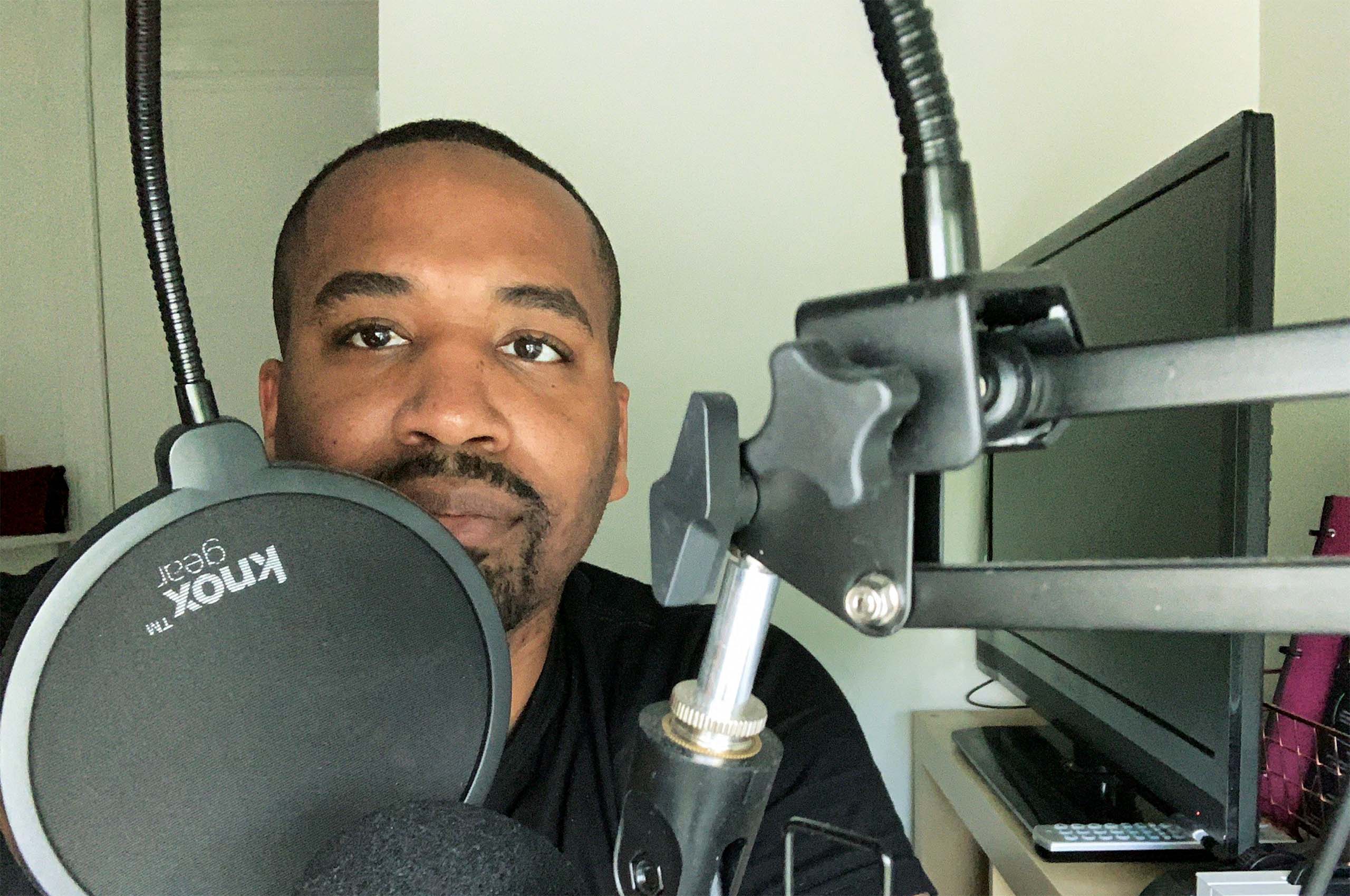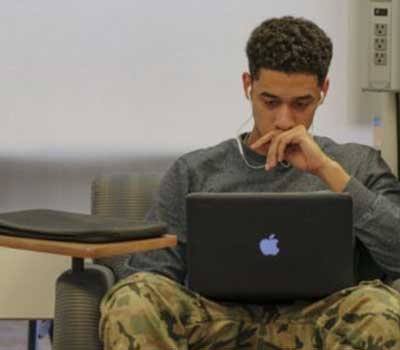
Tyrone Thomas ’22 first learned the rules of polite conversation as a child at the dinner table.
His mother and grandfather would discuss the news of their days while Thomas sat— usually silently. He saw that his mother and grandfather intently listened to one another, each waiting until the other had finished speaking before responding. The adults in Thomas’ life demonstrated respect and a sincere interest in understanding each other’s point of view.
As an adult, Thomas saw how social media and political polarization seemed to make thoughtful talk about difficult topics nearly impossible. Then after the murders of Ahmaud Arbery and George Floyd and with the arrival of COVID, Thomas saw a shift. For a time, people seemed more willing to listen to one another. But it was short-lived. “I wanted that back,” Thomas says. “I wanted to talk about the difficult conversations again and for people to listen to different opinions once more.”
Conversation without judgment
Thomas’ Good Faith Idea Exchange podcast premiered in 2020 with the mission “to create an environment where people with differing views on politics, justice, race, or most any other timely topic could express their viewpoints and exchange ideas without the rudeness or judgment often seen on cable news or heard on the radio,” Thomas says.
For his first episode, Thomas, a Navy veteran, talked with a friend from his years in the military. The two hold different political views. “We had a thoughtful, mature conversation where we each made our points while listening to the other without name-calling, yelling, or dismissing other perspectives,” he says.
Thomas, who is studying education and writing and rhetoric at URI, has also used the podcast to highlight the work of URI graduates working in community outreach and public education. “Above all else, the Good Faith Idea Exchange delivers a message of fellowship and communion with an audience from all walks of life,” Thomas says.
“No matter what listeners’ backgrounds may be, no matter the shape of their paradigm, they gain content and information that forces them to take a step back and examine the validity of their beliefs.”
And how do we have better and more productive conversations in everyday life? Listen, says Thomas. “It’s not a competition. It’s about thinking, not winning.”
—Marybeth Reilly-McGreen

